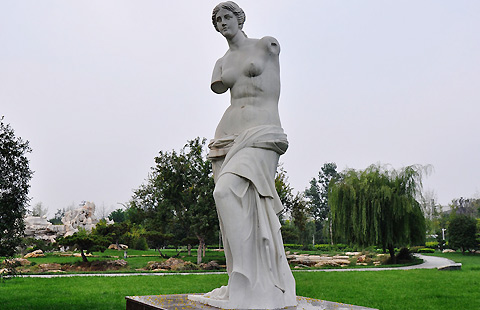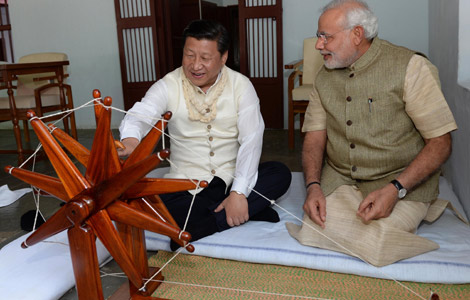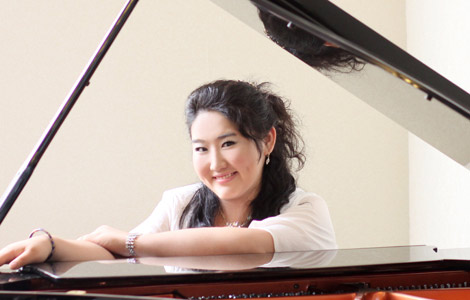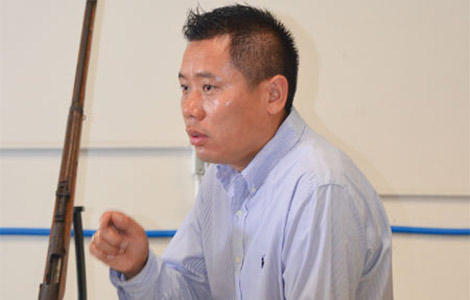Shanghai, Zhejiang to pilot gaokao reforms
Updated: 2014-09-20 08:04
By Yan Yiqi in Hangzhou(China Daily)
|
||||||||
Zhejiang province and Shanghai both announced new plans for the gaokao, the national college entrance exam, on Friday in the hope of improving the quality of education by allowing their high school students to learn a wider breadth of subjects.
Both the city and the province said the annual gaokao will no longer be the only criterion for college admission and that students will not be forced to choose a preference in majors from either liberal arts or sciences.
In the newly announced pilot programs, both regions will do away with the former gaokao system in which 12th-graders took tests on six subjects in just three days. In most regions, the gaokao can only be taken once a year.
With the changes, students will still be tested on Chinese, math and English. But for the three remaining subjects, students in Shanghai and Zhejiang can choose to be tested on a wider range of topics from geography, history, chemistry, biology, physics and politics, among others.
The students can also take examinations on subjects other than math and Chinese twice between the 11th and 12th grades and submit the highest score on their college applications.
Liu Xiping, director of the Zhejiang provincial education department, said at a news conference on Friday that the new plan is to reduce the burden of the exams by splitting them into different periods.
Dai Xiaoping, an expert with the Zhejiang Research Institute of Education Science, said the reform will improve the quality of high school education over the long run.
"Currently, 12th-graders' last year in high school is extremely stressful because of the gaokao. They have to work very hard on at least six subjects during that year. With the reform, they can distribute what they study into different periods, which will help them better learn each subject," she said.
But Gan Yiwen, an eighth-grader in Hangzhou, Zhejiang, said she is afraid that her entire senior high school years will be crammed with exams.
"Now they (high school students) only have to work hard for one year to prepare for the final exam. I don't want a miserable high school life," she said.
Liu, with the provincial education department, said measures will be adopted to ensure that high schools do not arrange their curricula only for exams.
"The ultimate goal of the reform is to improve the quality of the education. Students are the first concern with this plan," he said.
Lyu Jia, a teacher at Hangzhou Yuanqing High School, said rearranging curricula will be a challenge for high schools.
"Since students will choose different subjects, dealing with how to put them into class units is a challenge. For teachers, balancing classes according to tests is another challenge. We are still working on these issues," she said.
Liu said that after the rform colleges will have a more diverse body of students to choose from.
The reform will begin this year for 10th-graders in Shanghai and Zhejiang.

 China wins gold in synchronized swimming duets at Games
China wins gold in synchronized swimming duets at Games
 Couples tie the knot in traditional group wedding
Couples tie the knot in traditional group wedding
 Shandong shelters replicas of famed sculptures
Shandong shelters replicas of famed sculptures
 Art exhibition unveiled at Chinese embassy in NY
Art exhibition unveiled at Chinese embassy in NY
 Benefit of teaming up goes beyond borders
Benefit of teaming up goes beyond borders
 Beijing center hosts art exhibition inspired by LA
Beijing center hosts art exhibition inspired by LA
 Young pianist joins an elite roster
Young pianist joins an elite roster
 WWII relics put on display
WWII relics put on display
Most Viewed
Editor's Picks

|

|

|

|

|

|
Today's Top News
Li seeks to fast track green cards in FTZ
Fence-jump intruder sparks White House alert
Chinese porcelain vase sets US auction record
Xi praises contributors to China-India friendship
Alibaba makes IPO history
Scottish voters have rejected independence
Tennis star Li Na sends farewell to fans
Alibaba jumps more than 40% in trading debut
US Weekly

|

|








